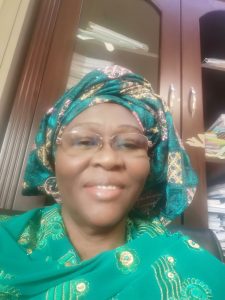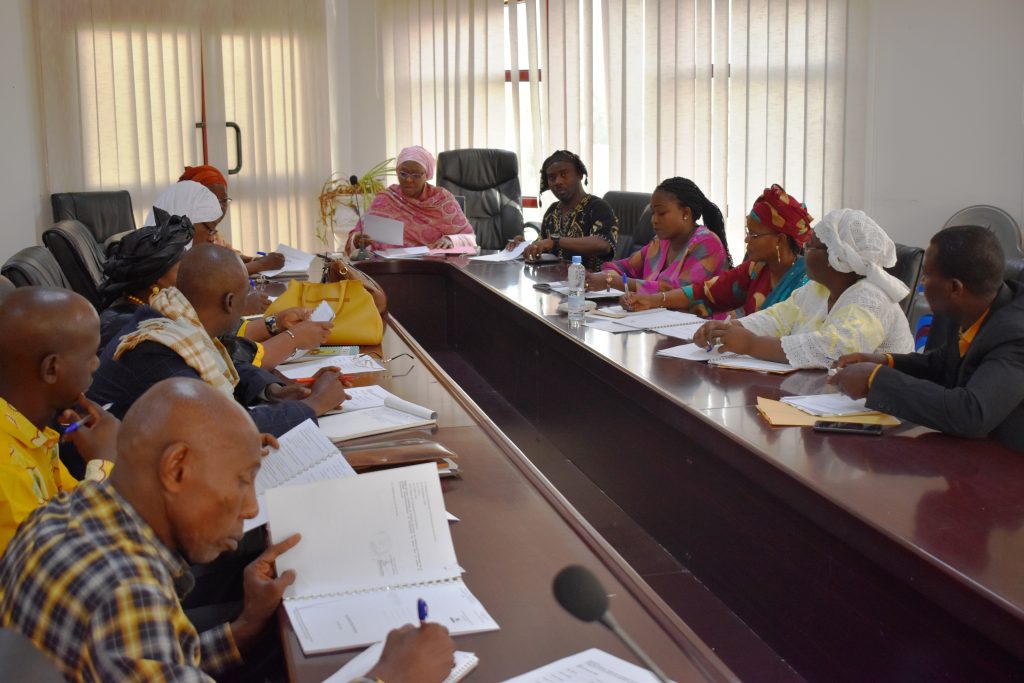 Souhayata Haidara is a teacher-researcher at the Rural Polytechnic Institute for Training and Applied Research in Katibougou, Mali, and technical advisor on Gender, Training and Partnership to the Ministry of the Environment, Sanitation and Sustainable Development (MEADD in French). She is also the coordinator of the Alliance Une Santé Mali (AUSS-Mali) and holds a doctorate in Population, Environment and Natural Resource Management. Despite her extensive academic and professional background, she has enrolled in courses to improve her skills in the field of climate change in order to better serve her country and her community.
Souhayata Haidara is a teacher-researcher at the Rural Polytechnic Institute for Training and Applied Research in Katibougou, Mali, and technical advisor on Gender, Training and Partnership to the Ministry of the Environment, Sanitation and Sustainable Development (MEADD in French). She is also the coordinator of the Alliance Une Santé Mali (AUSS-Mali) and holds a doctorate in Population, Environment and Natural Resource Management. Despite her extensive academic and professional background, she has enrolled in courses to improve her skills in the field of climate change in order to better serve her country and her community.
The UN CC:Learn courses helped me to draw up MEADD’s strategy for the integration and institutionalization of gender in the environment sector, as part of the implementation of MEADD’s national gender policy. MEADD was the only sectoral ministry to have a gender institutionalization strategy in Mali.
With this new knowledge, she was at ease during the project oversight assignment where over 150 women benefited from irrigated plots developed and equipped to help them adapt to climate change. In 2019, she developed a project on Women and Plastic Sachets aimed at combating climate change. In the Bamako District commune, she developed a green space and planted trees in collaboration with the L’Association Femmes Associées Pour la Santé Environnementale de Magnambougou (FASEM) members. She presided over the launch of the 2021 reforestation campaign in the commune on behalf of the MEADD, in collaboration with the National Water and Forestry Directorate and in the presence of administrative and communal authorities.

The knowledge I acquired enabled me to enrich my opening speech by emphasizing the role of trees in the fight against climate change, and the role of women in protecting the environment, especially as the event coincided with July 31, Pan-African Women’s Day.
The same site was used to launch the national reforestation campaign, during which each member of the government planted a tree. As part of the One Health approach, I organized a training session in collaboration with the members of AUSS-Mali on the One Health approach for the local elected representatives of the Bamako district. The focus was on climate change as an important factor to be integrated into the approach.
I would say that with these courses I have gained a lot of knowledge related to climate change that has improved my work to serve my country and my community.
Start your learning journey:
Join Souhayata and hundreds of other students and start learning today:
- Open Online Course on Gender and Environment
- Climate Change: From Learning to Action
- Human Health and Climate Change
*The views expressed in this story are solely those of the author and do not necessarily reflect the official policies or positions of the United Nations or any of its affiliated organizations.
